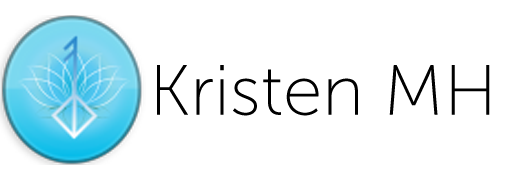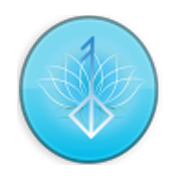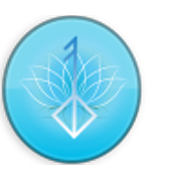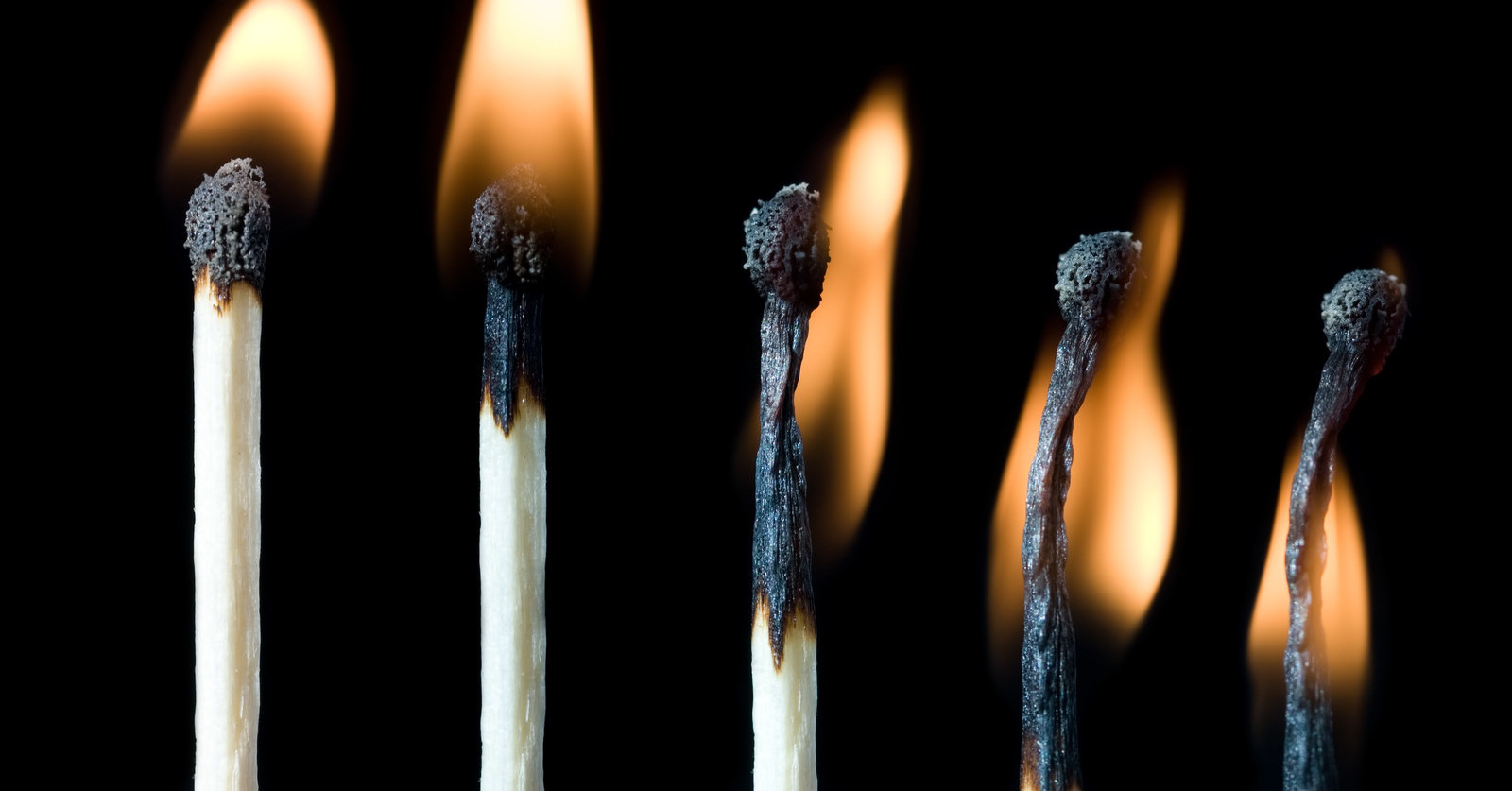
23 Oct Kristen’s Burn out blessing
I’d be honored if you would read my personal story of burn out, recovery and how this experience
has increased my compassion for others tenfold.
As I ran into my dark pantry and slammed the door, I called my friend and begged her to “Talk to me and tell me I am OK, tell me I am OK. PLEASE tell me I am OK! I AM OK right?” She reassured me that I was OK, safe, my mind was well and pleaded with me to make a change. My friend asked what started this panic attack, I told her I was just sitting in my home office on a work meeting like any other day and a wave of fear and confusion came over me. My heart started to race, I got confused, my house didn’t seem familiar, no one on the call made sense, no one looked or sounded familiar. Who were these people? I had to get out of here! So, I ran and found the first dark place.
My name is Kristen Marchus Hemstad (KMH at work) and I am a Business Program Manager at Microsoft. Panic attacks are nothing new to me but having them at my home is rare. They tend to come on when I am driving, in traffic, large crowds, etc. My house, however, was my safe place and now panic had seeped into my home from the outside world. My husband Leif, who also works for the company, was not available because he was on a seven-month assignment in the UK. My rock was not there with me and I really needed to figure this out. Fast.
I’ve been running from predator anxiety for my whole life and now I didn’t feel protected anywhere and vulnerable everywhere.
My General Practitioner had prescribed medication which initially helped, and I was able to work around my usual trigger points to avoid potential anxiety-provoking situations. Over time I was not able to hold myself together anymore. I thought to myself “Kristen, you used to be a therapist! You should know how to pull yourself together. You work at Microsoft! You have a great job with the best company on the planet! Get your &%& together!”
With my best friend in tow, I was back at my doctor’s office. I was afraid I was losing my mind, had a tumor in my head or something was seriously wrong with me. I couldn’t think. I couldn’t even ride in a car to the airport without having the driver pull over to let me curl up and sob. I was angry for no reason and at times my mind feels like it seized up and evaporated down my spine.
I told my doctor I needed time off. She was happy that I had finally realized this, agreed that I had deteriorated over the past year and said: “This will not end well if you don’t take time off”. Not everyone has a supportive family, employer, doctor, etc. I was so thankful to be heard, seen and understood.
So many of us are looking with wide eyes to be seen and heard but not often are people looking back <paraphrasing from a coworker>
Microsoft was more than understanding granting me time off. My manager, Channing, really listened, heard, understood and supported me. I felt zero judgment from him and that made my LOA so much easier. With my work covered, I turned off my e-mail and started to look at my health.
I started seeing a therapist and psychiatrist, both of whom validated the depth of my anxiety. Part of me thought I was making too much out of nothing. They helped me set realistic expectations about how difficult recovery is and that it takes a lot of work and time. I thought, “oh not me…I’ve got this covered and I’ll be back in no time”.
I was convinced that recovery would be an easy process. Just talk things out, enroll in some classes, take some time off and back in 2 months. Just taking time off alone will help right? I was more than wrong, I was delusional! I was NOT prepared for the rawness of my emotions and physical body after that wall of “I am holding this together” came crashing down.
Now I know what it means to hit rock bottom. I was burned out
Per the World Health Organization Burn out is….
“Burn-out is a syndrome conceptualized as resulting from chronic workplace stress that has not been successfully managed. It is characterized by three dimensions:
- feelings of energy depletion or exhaustion;
- increased mental distance from one’s job, or feelings of negativism or cynicism related to one’s job; and
- reduced professional efficacy.”
My body twitched, it hurt to move, and I didn’t want to eat or do anything. My emotions ran the spectrum of anger, depression, scared, anxiety, resentment, fear, etc. for no reason. I had to make lists for myself to do mundane tasks and needed to sleep after going only partway through my list and sleep I did! After a week I stopped feeling guilty for sleeping as much as I was because I now understood my body, mind, and soul needed to repair.
My mind was still at work. Deadlines rushed through my head. Tasks that needed to be done and meetings that were going on right now caused heart palpitations. Even though I knew work would be fine, I was scared that I may have missed something in my handovers to my peers. Worry, unfortunately, is a familiar space for me and my biggest worry is that I would be viewed as weak or be poison when I returned.
I was clueless as to how much of my identity was wrapped up in work. Where does your identity come from?
My psychiatrist made a few adjustments to the biochemical aspects of me. My therapist and I started to scratch the surface of suppressed emotions. I thought I was not tough enough <push it down>, not deserving to work where I do <push it down> and should just not let things bother me <push it down>. I was not validating my feelings. Feelings are not facts, but they are indicators of a need not being met. I felt ashamed and a fraud for being hired on to this amazing company and not being able to perform. But just because you can’t SEE the problem does not mean it does not exist. Here are some of the comments to me over the years
- Get over yourself
- You are sort of bitchcy
- What’s your problem?
- Take a deep breath come on
- That’s just stupid
- Just be happy! Just be happy!
- Get over it
My brother is diabetic, and I would never tell him to eat that cookie and “get over” taking his insulin.
I realized how devalued and fraudulent I felt. It was like I was holding dozens of emotional beach balls underwater. As time went along there were more and more. Eventually, my emotions started to pop up during times out of proportion to the event.
After two months into my leave, I was getting ready to go back to work. I didn’t feel 100% but I committed to that date so I’m doing it. On the way to pick up my groceries, I started to think about going back to my job. I felt sick, started to sweat, felt my heart start racing and my mind spun like it never has before. I called my mother to talk me down but even she could not. I thought this is THE panic attack that is going to leave me permanently damaged or kill me! I flagged down a friendly police officer who helped me and after the green light from EMT, I was off.
My thoughts swirled… “Am I ever going to be able to go back? Have I lost my edge? Do I need to find a new job? Do I need to quit? You are so weak!” I felt alone and didn’t realize how lonely I was at work until that moment. BOOM… the loneliness beach ball flew up in my face! I was scared that I was going back into the same environment and not prepared to handle it.
I work remote. I DO NOT need to be around people. As outgoing as I am, I need quiet to focus. My source of the loneliness was in large part because groups at work used to be intentional at working together. Due to changes in structure, they were no longer able to do so, creating silos. Where I am from, silos hold grain, they don’t make for effective team collaboration. My portfolio grew to an unruly capacity and I was not able to do my best. I felt defenseless and unable to do my job effectively.
I realized I didn’t want to will never fall back into the loneliness trap ever again.
I took a few more months off, felt myself getting stronger every day and researched. I read studies including some of my favorites:
- loneliness (America has a big lonliness problem, NIH study on loneliness),
- Work place Trauma (The hidden costs of workplace trauma is an older but very comprehensive study)
- Mental health Mental Health Symptoms discussing at work
- Burn out (WHO: burn out is real, stress vs burn out)
My team of medical professionals, family and friends helped to create mind-body balance and I started to work on feeding my soul and strengthening my emotional baseline. Our emotional baseline is the state we return to after experiencing emotional arousal. Emotional arousal can be thought of as wave like. When unencumbered, it arises, peaks and then falls away.
- Higher tolerance: The more level and lower you can keep that baseline… the more it takes to trigger Anger, Panic, anxiousness, Depression, etc.
- Lower tolerance: When stressed or burned out and that baseline is higher there is less room to process and it is easier to trigger those same emotions.
Here are a few things I started to do more to increases my tolerance.
- Getting out there: Recorded a few videos on linked in about burn out to destigmatize mind wellness. Talking about burn out, where I have been and what I have learned has been cathartic. Many people have reached out to share their stories
- Be realistic: I became realistic about the length of time for recovery which made the process smoother. Stopped judging myself for needing time and not being able to “snap out of this”.
- Slowed my mind. Meditated to still my mind and connect with my soul. We all need time to ourselves. You don’t need to lie on a bed of nails (however I DO have a friend who does), instead just be still. Began to float in sensory deprivation pods (the answer to life!) Monitored my thoughts as thoughts are things and can lead to actions.
- Got my body moving. I became so intolerant of exercise and would compare myself to my younger self who would thrive on exercise. So, I reframed my thought to just get my body moving.
- Got out of my head: When you are lonely, studies show that the world seems like a more dangerous and uglier place. I Journaled to get things out of my head, issues became more realistic and were easier to let go.
- Boundaries and expectations: There were no line between where I stopped, and others started. Therefore, I needed to start setting boundaries. It started with being kind vs nice. Kindness is honesty and nice is going along no matter what. I began to tell people what I wanted without apologizing vs hoping they would know what I needed. I realized that I expected others to reciprocate my actions, which is not fair to myself or others. Any time you base your happiness on someone else’s actions you are bound for disappointment.
- Found my square inch people: Took Brene’ Browns exercise and made two one-inch square boxes and put those opinions I really care about at work and home. If someone is not in that square, their opinion is none of my business.
- Support team. It is OK to lean on friends and family. It was hard to ask for help but when I did, no one turned me down. You really do realize who your friends are when you are down a bit.
I’m working on this list and have 25 tips to wellness! More to come!
It was time to go back to work and I was as ready as I would ever be. Going back to work was better but also harder than I thought. I was glad to be back with my work community, have a sense of purpose and to see my one-inch square people. However, it was more difficult acclimating to the volume of work coming than I thought. My assumption was that I would step in where I left off, but I needed to reacquaint myself to newer stakeholders I met before I left and really clarify what we were working on. At the end of the day, I was exhausted, and it took me 2 weeks to get my feet under me.
What I wish I would have known before leave.
- How raw and defenseless you may feel at the time you start your leave.
- You may feel guilt for taking care of yourself. Expect it. Acknowledge it. Glide past it.
- Mental health IS a medical condition and Microsoft will not let you be discriminated against. Tens of thousands of people (300K in the UK alone) are let go every year for mental health issues. Knowing I had a role to come back to was more than comforting.
- Just because you stop work, does not mean your mind will stop. Its ok to stop thinking about work so be intentional in turning off and being present outside of work.
- Your path to recovery will not be the same as anyone else.
A downturn is never wasted if you learn something from that experience. You will likely repeat scenarios until you do acquire what you are supposed to learn. I know now that I am stronger than I thought and am just as valuable as any other person. I’ve always wanted to help conscientious, mindful and empathic people like myself and now I am even more prepared to help others.
After this experience, I am closer to becoming the person I needed years ago. I am not crazy or weak and neither are you!
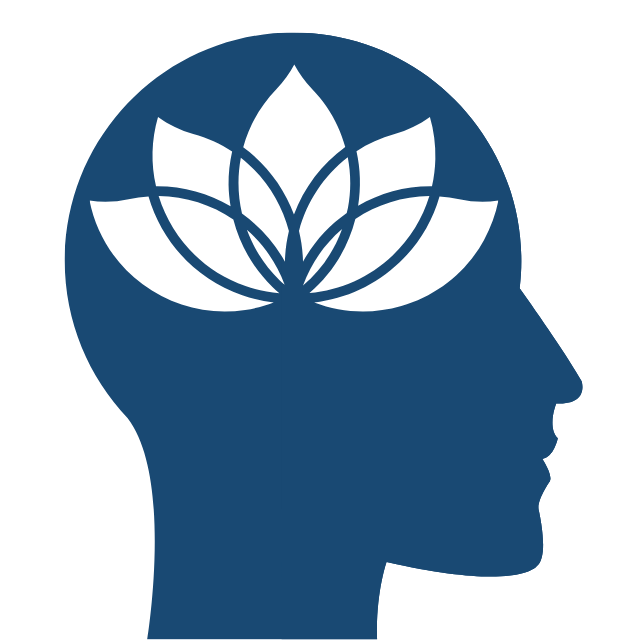 Contact me today for your FREE 20-minute session to review coaching opportunities for you! FIND OUT MORE!
Contact me today for your FREE 20-minute session to review coaching opportunities for you! FIND OUT MORE!